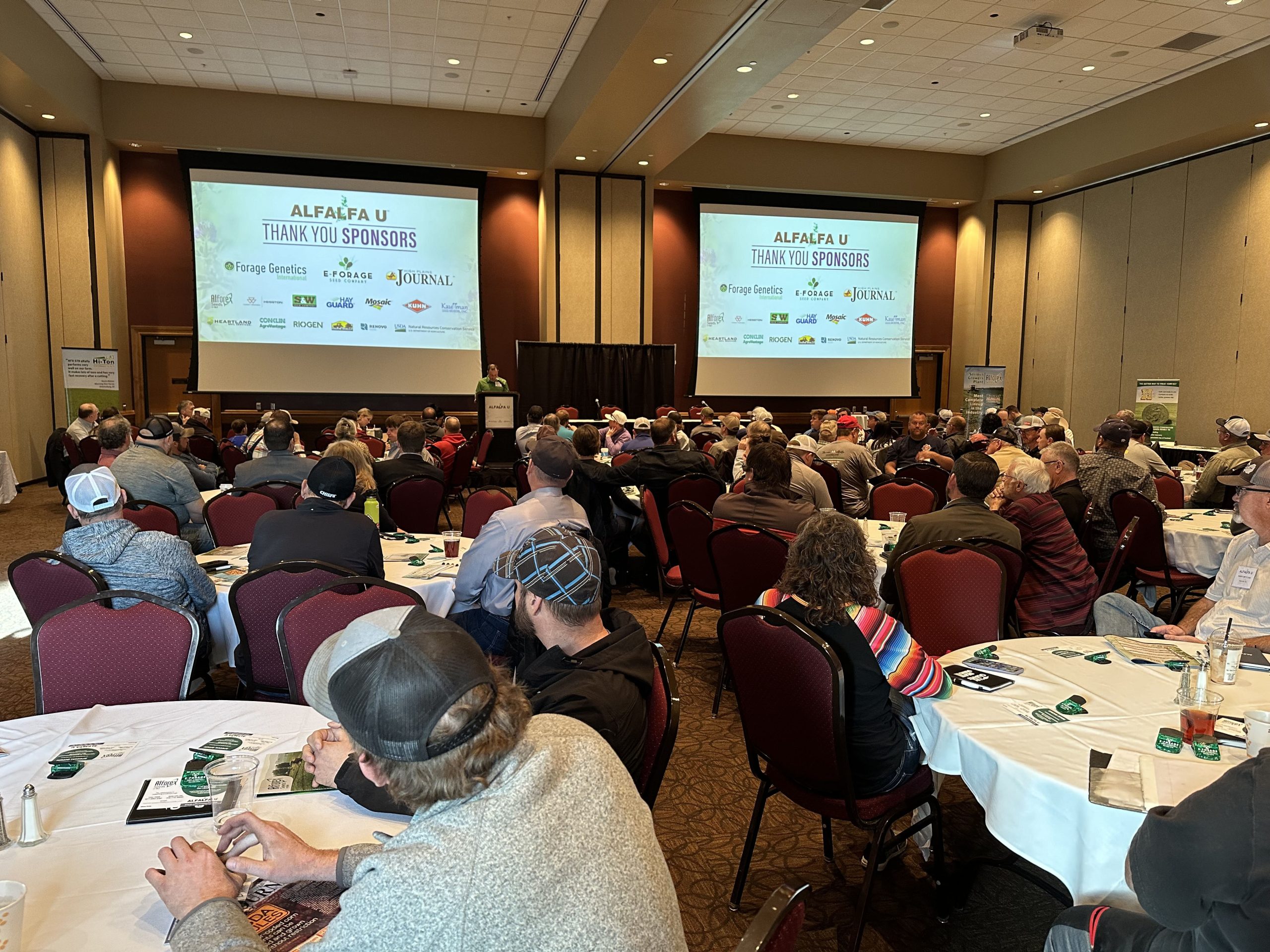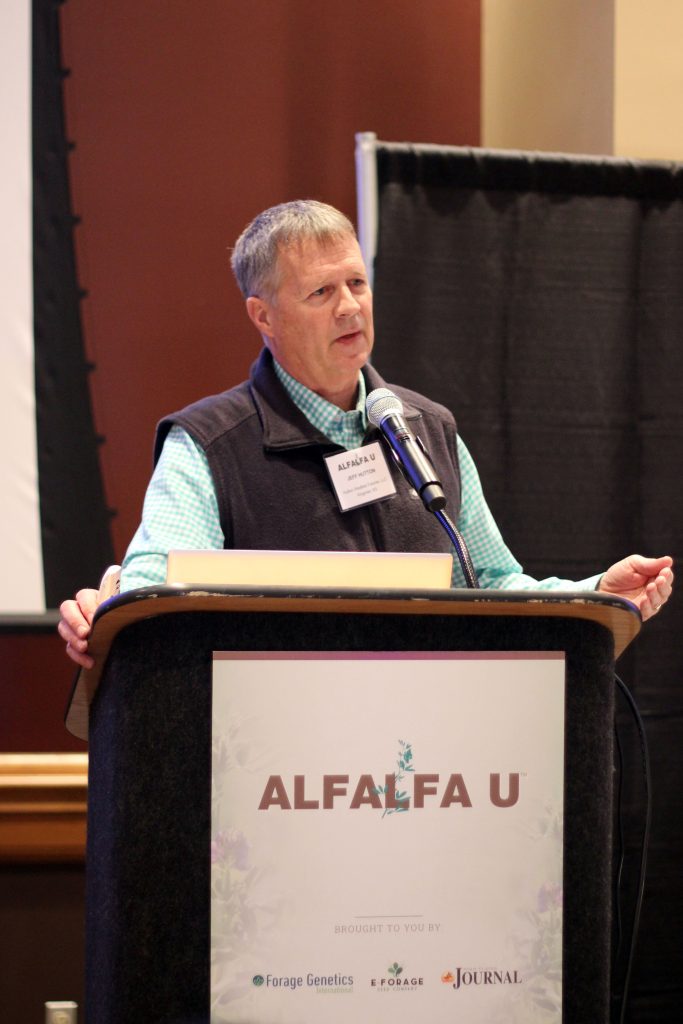Alfalfa U keynote speaker gives 2024 weather outlook

More than 130 alfalfa growers and industry experts from multiple states gathered in Dodge City, Kansas, for Alfalfa U on Feb. 27. The event was sponsored by E-Forage, Forage Genetics International, High Plains Journal and a number of other alfalfa adjacent companies and organizations.
Alfalfa U included six breakout speakers, an alfalfa industry panel, a luncheon speaker and a closing keynote. The closing keynote speaker was Jeff Hutton, meteorologist and owner of Hutton Weather Futures, LLC, located in Kingman, Kansas. His session included a Plains weather review and seasonal outlook for 2024 and beyond.

Hutton gave an overview of the weather patterns in 2023, and he made a point that last year is in the history books and will have no bearing on the weather that will come in 2024 or 2025. He said weather patterns reset every fall and start a new cycle. Next, Hutton asked Alfalfa U attendees how they define climate change and if they believe it is real.
“Everybody should raise their hand because climate changes all the time,” Hutton explained. “Climate is weather, whether it’s temperature, precipitation or wind, it doesn’t matter. If you take weather over about a 30-year period, that’s climate, and weather is always changing within that climate. Climate change is just a matter of fact that climate is changing, but it does not cause change.”
On the subject of El Niño and La Niña weather patterns, Hutton said one misconception people have is that these two patterns cause specific weather conditions. For example, La Niña is associated with drought and dry conditions, but just because we transition into La Niña, it does not guarantee a drought.
“El Niño and La Niña do not cause weather,” he said. “They’re just a contribution to the weather pattern. They could enhance it, or they could not enhance it. Not all El Niño or La Niña events are the same.”
Hutton also warned producers to be careful where they source weather data. He said a lot of the apps available use computer data to make forecasts. These types of apps might not be as accurate because they tend to create an average of the data, rather than pinpoint a specific location and its data, he said.
Hutton’s 2024 outlook
The weather pattern for 2024 began in the fall of 2023 and will start to die out around August and September. Currently, the High Plains are in a fading El Niño, which could have some impacts on the future conditions this summer. Hutton said all the computer models show the region entering a La Niña at some point, and it could be a strong one. The question is when that transition will occur.
“I just don’t know how much contribution there will be from this dying El Niño,” Hutton said. “It looks like it will happen pretty quickly. Forcing El Niño to La Niña will change things, but I’m a little uneasy about how it will change it.”
Several weather aspects will affect the weather this year, Hutton said. These include the orientation of the jet stream between fall 2023 and spring 2024; location of troughs and ridges; where geographic amplification will take place; and most importantly, the locations of atmospheric “forcing.”
“We had a really cold stretch back in January, but I think we will probably get back into a colder period the last few days of March and into April,” Hutton said.
Producers should expect an active spring, he said, but added that he does have concerns about dry weather in the future months.
“If we have a wet spring, sometimes that can carry into the summer,” Hutton said. “Can we have another event like last year where everything gets stagnant and then just parks over us? That is certainly a possibility. I don’t think it’s going to be a 2011 or 2021, but I think next year will be drier than this year.”
For more editorial coverage of Alfalfa U, follow along in futures editions of HPJ or visit www.hpj.com.
Lacey Vilhauer can be reached at 620-227-1871 or [email protected].



